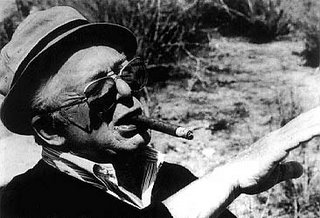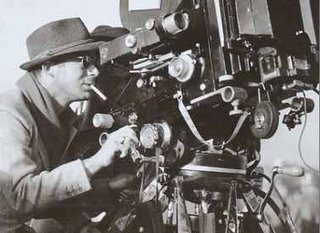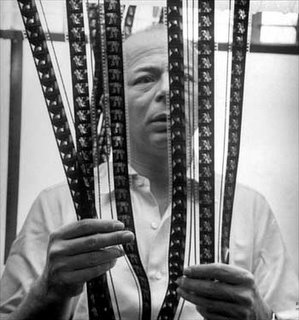La Vida Secreta de la Canción de Amor
Esta invitación a venir a aquí a dar clase, a disertar, a impartir el conocimiento que he reunido sobre la poesía, sobre la escritura de las letras de canciones, me llena de sentimientos encontrados. El más fuerte, el más insistente de esos sentimientos, tiene que ver con mi padre, que era profesor de literatura inglesa en la escuela secundaria a la que yo asistía en Australia. Recuerdo claramente cuando tenía alrededor de doce años y me sentaba en el aula o el salón de actos, como ustedes ahora, a escuchar a mi padre, que estaba parado aquí donde estoy yo ahora, y me decía para mis adentros, en mi tristeza e infelicidad, porque yo básicamente era un niño sombrío e infeliz: "No importa demasiado lo que haga con mi vida siempre y cuando no termine como mi padre". A los cuarenta años de edad, me parece que todo lo que pueda hacer me acerca más a él, me hace cada vez más parecido a él. A los cuarenta años, me he convertido en mi padre, y acá estoy, enseñando.
Hoy me gustaría hablar un poco de "la canción de amor", contarles mi propio acercamiento a ese género de la escritura de canciones que forma parte, según creo, del corazón mismo de mi búsqueda artística personal.. Y quiero repasar otros trabajos, que por los motivos que sean, considero como logros sublimes de la más noble de las búsquedas artísticas: la creación de una gran canción de amor.
Al mirar atrás a estos últimos veinte años, veo que prevalece una cierta claridad. En medio de la locura y el caos, pareciera que he estado golpeando el parche de un mismo tambor. Veo que mi vida artística ha estado abocada al intento de articular la naturaleza de un sentimiento de pérdida casi palpable y que se ha cobrado mi vida. Un enorme abismo que se abrió paso bajo mis pies con la inesperada muerte de mi padre, cuando yo tenía diecinueve años. La manera que encontré de llenar ese agujero, ese vacío, fue escribir. Fue mi padre el que me enseñó, como si hubiese querido prepararme para su partida. Escribir me permitió tener acceso directo a mi imaginación, a la inspiración y, en definitiva, a Dios. Gracias al uso del lenguaje, advertí que podía dar existencia a Dios con la escritura. El lenguaje se convirtió en la sábana que arrojaba sobre el hombre invisible para darle forma. Mi primera motivación como artista sigue siendo hacer realidad a Dios a través de las canciones de amor. La canción de amor es quizás el don humano más sincero y distintivo en el que podemos reconocer a Dios, y es un don que Dios mismo necesita. Dios nos dio ese don para que podamos hablarle y cantarle en vida, porque Dios vive en la comunicación. Si el mundo se quedara de pronto en silencio, Dios se descontruiría y moriría. El propio Jesucristo dijo en una de sus más bellas frases, " Donde dos o más se reúnan en mi nombre, allí estaré yo en medio de ellos". Lo dijo porque allí donde se reúnen dos o más personas, hay lenguaje. Yo descubrí que el lenguaje era como un bálsamo para las heridas que me dejó la muerte de mi padre. El lenguaje se convirtió en un bálsamo para la nostalgia.
Si bien la canción de amor toma muchas formas -canciones de exultación y alabanza, canciones de rabia y desesperación, canciones eróticas, canciones de pérdida y abandono-, todas están dirigidas a Dios, pues la canción de amor habita en el atormentado reino de la nostalgia. Es como un aullido en el vacío, un pedido de Amor y de solaz, y está viva en los labios del niño que pide por su madre. Es la canción del amante que pide por su amada, el desvarió del suplicante lunático que implora a su Dios. Es el grito de alguien encadenado a la tierra, a la banalidades mundanas, que ansía volar, volar hacía la imaginación, la inspiración y la divinidad. La canción de amor es el sonido de nuestro esfuerzo por elevarnos por encima de las ataduras y mediocridades del mundo.
Me parece que la pérdida de mi padre generó un vacío en mi vida, un espacio en el que las palabras comenzaron a flotar, reunirse y a encontrar sentido. El gran W. H. Auden dijo: "La así llamada experiencia traumática no es un accidente, sino la oportunidad que el niño ha estado esperando pacientemente -de no haber ocurrido, habría encontrado otra- para empezar a tomarse la vida en serio". La muerte de mi padre fue la "experiencia traumática" de la que habla Auden y que dejó ese agujero que Dios debía llenar. Es muy bella esa idea de que nosotros mismos creamos nuestras catástrofes personales y que son las fuerzas creativas de nuestro interior quienes las instrumentan. Todos tenemos necesidad de crear, y la tristeza es un acto creativo. La canción de amor es una canción triste, es el sonido mismo de la pena. Todos hemos experimentado en nuestro interior eso que los portugueses llaman saudade, que se traduce como un inexplicable sentimiento de nostalgia, un anhelo inefable y enigmático del alma. Ese es el sentimiento que habita en el reino de la imaginación y la inspiración, terreno de cultivo de la canción triste, pues la canción de amor es la luz de Dios que se abre paso desde lo más profundo y estalla en nuestras heridas.
En su brillante conferencia titulada "Teoría y juego del Duende", Federico García Lorca intenta desentrañar la inquietante e inexplicable tristeza que habita en el corazón de ciertas obras de arte. "Todo lo que tiene sonidos negros tiene duende", dice. "Poder misterioso que todos sienten y que ningún filósofo explica". En el ámbito del rock contemporáneo, área en la que me desempeño, la música parece menos proclive a tener alma propia, estremecida e incansable, esa tristeza de la que habla Lorca. Entusiasmo, muchas veces; rabia, puede ser; pero verdadera tristeza raramente. Bob Dylan siempre la ha tenido. Leonard Cohen comercia específicamente con ella. Acecha a Van Morrison como un perro negro y sin embargo intenta escaparse. Tom Waits y Neil Young son capaces de conjurarla. Persigue a Polly Harvey. Mis amigos de Dirty 3 la tienen a raudales. A la banda Spiritualised los excita. Tindersticks la desea con desesperación, pero en general el duende parece demasiado frágil para sobrevivir a la brutalidad de la tecnología y la creciente aceleración de la industria de la música. Quizás en la tristeza simplemente no haya dinero, ni haya dólares en el duende. Tristeza y duende necesitan espacio para respirar. La melancolía detesta el apuro y flota en silencio. Hay que tratarla con cuidado. Las canciones de amor deben tener duende.
Porque la canción de amor nunca es realmente feliz. Debe en primer lugar tener potencial para el dolor. Esas canciones que hablan de amor sin tener entre sus líneas una pena o un suspiro no son canciones de amor sino más bien canciones de odio disfrazadas de canciones de amor, y no son de fiar. Esas canciones nos niegan nuestra humanidad y nuestro derecho divino de estar tristes, y son la basura que llena las ondas de radio. En la canción de amor debe resonar el susurro de la pena, el tintineo del dolor. El escritor se niega a explorar las zonas oscuras del corazón nunca será capaz de escribri convincentemente acerca del milagro, la magia y la alegría del amor, del mismo modo en que la bondad es sospechosa si no ha respirado el mismo aire que la maldad, y aquí me viene a la mente imperecedora metáfora de Cristo, crucificado entre dos criminales. Por lo tanto, en el entramado de la canción de amor, en su melodía, su letra, uno debe ser capaz de de reconocer su potencial para el sufrimiento.
En su notable canción "Perferct Day, Loud Reed escribe, casi en forma de un diario, los eventos que deben concurrir para que un día sea perfecto. Es un día que vibra con la belleza suspendida del amor, un día que él y su amada se sientan en el parque a tomar sangría, alimentan a los animales en el zoológico, van al cine, etc. Pero son las líneas que oscurecen el tercer verso, "Me sentía otro, me sentía alguien bueno", las que transforman esta canción, de otra manera sentimental, en la obra maestra de la melancolía que es. Estas líneas no sólo rezuman fracaso y vergüenza, sino que nos recuerdan de manera más general la naturaleza efímera del amor, que tendrá su día "en el parque", pero como Cenicienta, que debe regresar a medianoche al hollín y las cenizas de su mundo sin magia, él también deberá regresar a su antiguo ser, su ser malo. Esta canción emana del vacío, arropada por la pérdida y la nostalgia.
Cuando tenía alrededor de veinte años, comencé a leer la Biblia y descubrí en la brutal prosa del Antiguo Testamento, en el sentimiento de sus palabras y sus imágenes, una fuente de inspiración. El "Cantar de los Cantares", quizás el mejor poema de amor jamás escrito, tuvo un impacto decisivo en mí. Su naturaleza abiertamente erótica, el viaje metafísico por el cuerpo de lo amantes -los senos comparados con racimos de uvas y jóvenes venados, el cabello y los dientes comparados con rebaños de cabras y ovejas, piernas como columnas de mármol, el ombligo como copa, el vientre como una parva de trigo-, y su asombroso imaginario, nos disparan al mundo de la pura imaginación. Aunque los amantes están físicamente separados -Salomón queda excluido del jardín donde canta su amada-, la salvaje y obsesiva proyección de uno de los amantes sobre el otro los funde en un mismo ser, construidos con una serie de metáforas de arrebato amoroso.
El "Cantar de los Cantares" es una extraordinaria canción de amor, pero la que realmente me atrapó fue esa serie de poemas-canciones conocida como los Salmos. Descubrí que los Salmos, que tratan directamente del vínculo entre el hombre y Dios, desbordaban de ese clamor desesperado, de esa nostalgia, exaltación, violencia y brutalidad eróticas que yo estaba buscando. Los Salmos están empapados de saudade, henchidos de duende y bañados de violencia destemplada. En muchos sentidos, esas canciones se convirtieron en el modelo de mis canciones de amor más sádicas. En partícula el Salmo 137 -uno de mis favoritos, que la pequeña y fantástica banda Boney M. convirtió en un éxito- es un pefecto ejemplo de todo lo que vengo diciendo. La canción de amor debe originarse en el reino de lo irracional, del absurdo, de la distracción, la melancolía, la obsesión y la insania, pues la canción de amor es el ruido del amor mismo, y el amor, por supuesto, es una forma de locura. Ya se trate del amor a Dios o de amor romántico, erótico, todas son manifestaciones de nuestra necesidad de arrancarnos de la racionalidad, de perder la cordura, por así decirlo.
En el salmo 137, el poeta descubre que está cautivo en "una tierra extraña" y estalla en loas a Sión. Jura amor a su tierra natal y sueña con vengarse. El salmo espanta por la violencia de esos sentimientos, pues el hombre canta el amor a su tierra y su Dios mientras asegura que estaría feliz de asesinar a los hijos de sus enemigos. Lo que yo descubrí una y otra vez en la Biblia, especialmente en el Antiguo Testamento, es que los versos de arrebato, de éxtasis y de amor, pueden albergar en su interior sentimientos aparentemente opuestos, de odio, venganza, furia, etc., que no se excluyen mutuamente. Es una idea que ha dejado una marca muy duradera en mis canciones.
Dentro del mundo de la música pop moderna -un mundo que se ocupa ostensiblemente de la canción de amor, pero que en realidad no hace más que esparcir por las ondas de radio porciones tibias y amarillentas de vómito de bebé-, la verdadera tristeza no es bienvenida. Pero a veces aparece una canción que detrás de su ritmo plástico y descartable oculta la lírica de un amor de magnitud devastadora. "Better The Devil You Know" (Mejor malo conocido", escrita por los fabricantes de éxitos Stock, Altkin y Waterman e interpretada por la sensación del pop australiano Kylie Minogue, es una de esas canciones. El terror del Amor disfrazado detrás de una música pop inocua y hueca es un concepto inquietante. " Better The Devil Know" es una de las letras de amor más violentas y desesperadas de la música pop.
Decí que no me vas a abandonar
Y yo te vuelvo a aceptar
Basta de excusas, no más
Las conozco todas ya
Una y mil veces o más
Voy a perdonar y olvidar
Si decís que no te vas
Lo que dicen es verdad:
Mejor malo conocido
Ya conozco tu canción
Me decís que me amás
Y no pido nada más
Vos me llamás y yo, voy
Cuando Kyie Minogue canta esas palabras, la inocencia en su voz hace aún más convincente el horror de esta letra estremecedora. La idea presente en el interior de esta canción es negra, siniestra y triste -que todas las relaciones de amor son abusivas por naturaleza, y que ese abuso, ya sea físico o psicológico, es bienvenido y celebrado- y demuestra hasta que punto la canción más inocua puede esconder terribles verdades humanas. Como Prometeo encadenado su roca para que el águila pueda comerle el hígado cada noche, Kylie se ofrece como cordero para el sacrificio del amor, con un balido que conmina al lobo hambriento a devorarla cuantas veces quiera, todo al ritmo de un tecno pegadizo. "Y yo te vuelvo a aceptar. Te acepto una vez más". Claro que sí. De ese modo, las canciones de amor se convierten en vehículo de un desgarrador retrato de la condición humana, no demasiado diferente al que brindan los Salmos del Antiguo Testamento.
Como dije anteriormente, mi vida artística a girado entorno al deseo, para ser más exactos, la necesidad de articular los diversos sentimientos de pérdida y nostálgia que han resonado entre mis huesos y zumbado en mi sangre durante toda mi vida. En ese proceso he escrito alrededor de doscientas canciones, en su gran mayoría canciones de amor. Canciones de amor y por lo tanto, según mi definición, canciones tristes. De esa considerable masa de material, hay una puñado de canciones que se destacan como verdaderos ejemplos de lo que he estado diciendo. "Sad Waters", "Black Hair", "I Let Love In", "Deanna", "From Her To Eternity", "Nobody´s Baby Now", "Into my Arms", "Lime TreeArbour", "Lucy", "Straigh to You" son todas canciones de las que estoy orgulloso. Son hijos tristes, violentos, de mirada oscura, que se quedan sentados sólos y amargados y no juegan con las otras canciones. En su mayoría, son hijos de embarazos complicados y partos difíciles y dolorosos. En su mayoría, tiene su origen en experiencias personales directas y fueron concebidos por diversos motivos, pero las canciones de ese grupo tan variado son finalmente lo mismo: sogas lanzadas hacia la galaxia de la divinidad por un hombre que se ahoga.
La razones que me impulsan a escribir canciones de amor son incontables. Algunas de esas razones me quedaron más claras cuando me senté con un amigo, al que por respeto llamaré J.J., y admití que ambos sufríamos de un desorden psicológico al que los médicos llaman erotografomanía. La erotografomanía es el deseo obsesivo de escribir cartas de amor. Mi amigo me confesó que en los últimos cinco años había escrito más de siete mil cartas de amor a su esposa. Estaba extenuado, y su vergüenza era casi palpable. Yo sufro la misma enfermedad, pero afortunadamente todavía no he llegado a un estado tan avanzado como mi pobre amigo J. Debatimos sobre el poder de la carta de amor y descubrimos, sin mucha sorpresa, que era muy similar al de la canción de amor. Ambas funcionaban como una extensión de las meditaciones sobre el ser amado. Ambas servían para acortar la distancia entre el autor y el destinatario. Ambas contenían un fuerza y una perdurabilidad de la que carece la palabra hablada. Ambas tenían la capacidad de reinventar con palabras al ser amado, como Pigmalión con el amante de piedra de su propia creación. Desafortunadamente, la forma más entrañable de la correspondencia, la carta de amor, ha sufrido tanto como la canción de amor, a manos de la gélida velocidad tecnológica y del desapego de esta época desalmada.
Finalmente, me gustaría repasar una de mis propias canciones de amor, que grabé para el albúm llamado The Boatman´s Call. Siento que esta canción es un buen ejemplo de mucho de lo que he dicho hoy aquí. La canción se llama "Far From Me"
Para tu amor nací
Para vos me criaron
Para vos he vivido y para vos moriré
Y por vos estoy muriendo
Eras mi loquita, mi amante
En un mundo donde cualquiera se coge a/cualquiera
Tan lejos de mí
Lejos de mí
Te hablaba de mil cosas
Y me contestabas con una sonrisa
Entonces el sol se iba de tu carita
Y te replegabas del frente de tu ojo
Me decís que estás mejor así
Espero que tu corazón lata contento en
/ese pecho de niña
Tan lejos de mí
Lejos de mí
No hay nada qué saber, pero lo sé
No hay nada que aprender de esa voz
/ausente
Que llega a mí desde el otro lado de la línea
Desde lo ridículo hacia lo sublime
Me alegra oír que te va bien
Pero podrías encontrar a otro a quien
/llamar para contarle
¿Alguna vez te importé?
¿Alguna vez estuviste para mí?
Tan lejos de mí
Dijiste que te ibas a quedar pegada a mí
Esas fueron tus palabras
Amiga sólo en las buenas
Fuiste mi amante corazón de león
Qué a la primera de cambio corrió con su mamá
Tan lejos de mí
Lejos de mí
Suspendida en tu negro océano sin peces
Lejos de mí
Lejos de mí
Me tomó cuatro mese escribir "Far From Me", que fue lo que duró la relación que describe la canción. Los primeros versos fueron escritos durante la primera semana del romance, están llenos de heroicidad dramática del amor nuevo, y describen el sentimiento en su totalidad, sin descartar su potencial de sufrimiento, "Y por vos estoy muriendo". Sitúan a los amantes en un mundo indiferente "donde cualquiera se coge a cualquiera" e incorporaran la idea de distancia física que el título sugiere. Extrañamente, sin embargo, y como si hubiese esperado a que se produjera la "experiencia traumática" de la que hablábamos antes, la canción no se dejó terminar hasta que la catástrofe finalmente ocurrió. Algunas canciones son así de tramposas, y lo más sabio es tener mucho cuidado con ellas. Muchas veces descubro que las canciones que escribo saben más de lo que pasa en mi vida que yo mismo. Tengo páginas y páginas de cuartetas para esta canción que fueron escritas cuando la relación iba viento en popa. Una dice así:
La camelia, la magnolia
Tienen flores tan hermosas
Y las campanas de Santa María
Nos dan la hora
Palabras bonitas, inocentes, que ignoraban que un día u otro se vendría abajo. Las canciones de amor que se apegan a la experiencia real, que son una poetización de hecho reales, contienen un belleza muy especial. Siguen vivas igual que los recuerdos, y como están vivas crecen, se transforman y desarrollan. "Far From Me" es una canción que ha encontrado su propia personalidad, una que excede la que yo le di originalmente al escribirla y que tiene el poder de modificar mis propios sentimientos acerca del hecho en sí. Es algo extraordinario, y uno de los maravillosos oficios de escribir canciones. La canciones que he escrito y que tratan de relaciones pasadas se han convertido en relaciones en sí. A través de esas canciones, he logrado hacer un mitología de los hechos comunes de mi vida,
elevándolos del plano de lo temporal para lanzarlos más allá de las estrellas. La relación que describe "Far From Me" ya fue y ya pasó, pero la canción sobrevive, como un pulso que recorre mi pasado. Veinte años hace que escribo canciones y los abismos de vacío se siguen ensanchando. Esa tristeza inexplicable, ese duende, esa saudade, ese divino descontento persiste y quizás persista hasta que le vea la cara al mismo Dios. Pero cuando Moisés quiso verle la cara a Dios, en Éxodo 33, 188, le respondieron que no podría resistirlo, que ningún hombre puede ver su rostro y vivir para contarlo. A mí, en todo caso, no me importa. Me alegra estar triste. Pues el residuo, los desechos de esa búsqueda, las canciones mismas, mi torcida progenie de hijos de ojos tristes, andan por ahí y de alguna manera me protegen, me consuelan y me mantienen vivo. Son los compañeros de exilio del alma, los que la salvan de ese anhelo irrefrenable de algo que no pertence a este mundo. La imaginación necesita reemplazarlo, y al escribir canciones de amor uno se sienta a la mesa con la pérdida y la nostalgia, con el éxtasis de la locura y la melancolía, con la magia el gozo y el amor, y con algunas cantidades de respeto y gratitud. La búsqueda espirtual tiene muchas caras: religión, arte, drogas, trabajo, dinero, sexo. Pero esa búsqueda rara vez sirve a Dios de manera tan directa como escribir canciones de amor, y rara vez la recompensa es tan grande.









